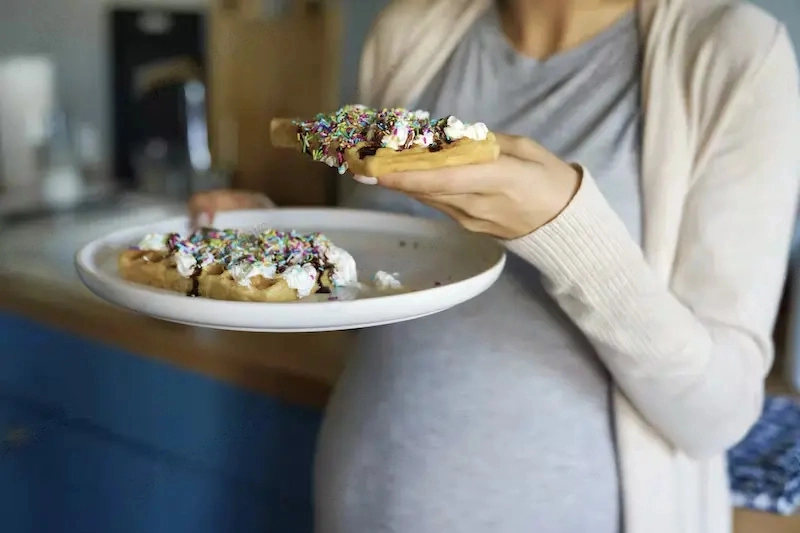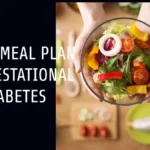
Like many other pregnant women, you can start to develop cravings as your pregnancy progresses, sometimes of the strangest kind. This is yet another typical aspect of the alterations that occur throughout pregnancy. Today, we’ll discuss pregnancy cravings in detail, including when they occur, why your body causes them, what they signify, and how to handle them, so read on now to find out more about pregnancy cravings.
When Do Pregnancy Cravings Start and How to Handle Them
When Do Pregnancy Cravings Start?
When do pregnancy cravings begin? Pregnancy cravings vary widely from person to person, but they usually begin in the first trimester when the first hormone wave begins to enter the bloodstream.
They could start to manifest as early as the first week after conception and reach their peak in the second trimester. Cravings start to lessen around the third trimester and frequently end entirely after giving birth.
Are Pregnancy Cravings Normal?
Yes, cravings during pregnancy are very natural. In fact, a research found that pregnant cravings occur in 50–90% of women.
The types of food that pregnant women crave are virtually endless. Expectant mothers can have cravings for pickles, chocolate, avocado, fast food, cheese, and potato chips.
What Do Pregnancy Cravings Mean?
Many pregnant women have sudden urges to eat particular foods, known as pregnancy cravings. Pregnant women typically have a craving for items that are available in supermarkets.
Other pregnant women also have a strange craving for items that they wouldn’t otherwise eat.
Why Do Pregnant Women Have Cravings?
The significant hormonal changes that occur during pregnancy may be to blame for cravings. Rapid hormonal changes have a significant impact on taste and scent, which explains why cravings and aversions are more common in pregnant women and menopausal women.
The body may use cravings as a coping mechanism for all the physical changes and additional labor it must accomplish during pregnancy.
What Are Some Common Pregnancy Cravings?
The majority of pregnant women have cravings for spicy, dark chocolate, and salty foods. Some people also enjoy eating foods that are tangy or sour.
Some pregnant women also frequently experience strange food cravings, such as the combination of pickles and ice cream that is frequently portrayed in pop culture.
Can Pregnancy Cravings Determine Gender?
According to old wives’ tales, craving sweets indicates a girl is on the way, whereas craving salty or spicy foods indicates a male. None of these statements, however, are supported by scientific research.
What Should You Know About Your Diet During Pregnancy Cravings?
Although cravings for pregnancy foods may be alluring, you should constantly be mindful of the nutrition that each dish provides. You should consume a diet that is well-balanced that includes lean proteins, whole grains, legumes, vegetables, and fruits.
This guarantees that both your body and the body of your child receive the correct nutrients.
Eating a lot of unhealthy meals that are heavy in fat, sugar, and chemicals can cause you to gain a lot of weight, which can continue even after you give birth and cause gestational diabetes. Finally, remember to eat frequently because blood sugar decreases might increase cravings.
Related: Fertility Diet: Know the Foods That Help You Get Pregnant
When Should You Visit a Doctor About Your Pregnancy Cravings?
Pregnancy cravings are normal when you’re expecting a baby, but some of them could be somewhat risky and necessitate a trip to the doctor. Pica, a disorder when you crave potentially deadly non-food substances like soap and dirt, is one that should raise concern.
Others also crave drugs or alcohol, which potentially puts their babies in danger.
How Do You Handle Crazy Pregnancy Cravings?
You can decrease your consumption of unhealthily prepared foods by managing your “unhealthy” urges in the following ways:
- If you feel the want to eat something sweet, like a brownie sundae, consider “cheating” your mind by waiting to eat if you’ve already eaten in the previous two hours. By diverting your attention from unhealthy foods, you can practice resisting the impulse to eat them. Instead, you may take a little stroll, read one of your favorite novels, or chat with a friend.
- If you have an uncontrollable sweet tooth, get the fun-size candy bar rather than the king-size. As a result, you consume less additional sugar when eating sweets.
- When you crave high-calorie indulgences, such a premium ice cream, focus on calorie-dense meals like frozen yogurt or low-fat fudge bars.
- Eat breakfast every day to start the day full of nutrients and less likely to go for morning munchies. For instance, you could make a breakfast of a hard-boiled egg, a medium-sized orange, a glass of low-fat milk, and half of a whole-grain English muffin.
- Engage in regular exercise because being in shape can help you avoid food cravings and control hunger. Every morning, you can engage in a little workout, like a 30-minute stroll outside.
- Prepare your nutritious snacks in advance so that they are available when you are hungry. If you don’t plan your snacks and suddenly get hungry, you can eat unneeded and unhealthy meals.
- Seek out emotional support from a loved one to combat hormone-related mood swings. If you experience mood swings frequently, you might eat to boost your mood. You can get your mind off hunger by talking to or spending time with a loved one.
- Engage in an activity you enjoy so that it occupies your thoughts. If you’re artistic, you can decorate your room or work on simple housekeeping tasks like setting things up in your kitchen while listening to music. Because of how basic these things are, you won’t realize that snack time has passed.
Why Should You Take Weight Gain Seriously During Pregnancy Cravings?
Pregnancy-related food cravings are frequently harmful, which is why most women gain weight.
However, the issue does not end there because a pregnant woman’s weight gain makes it more difficult for her to lose extra pounds after giving birth, which can result in postpartum weight retention.
Because of this, pregnant women should always remember that while giving in to cravings is okay, choosing a healthy option is preferable.
Related: How Much Weight Should I Gain In Pregnancy?
Should You Be Resisting Early Pregnancy Cravings?
If you want to maintain your health before giving birth, you should resist pregnancy urges. It is okay to resist your cravings because they are merely a result of hormonal changes that affect your senses of smell and taste.
Always keep in mind that if you can’t control your appetites, moderation is always the best course of action.
Do Pregnancy Cravings Make You Eat More?
Yes, it does, especially if you consistently give in to frequent cravings for items rich in calories. As was already discussed, eating in moderation will fulfill your appetites while allowing you to limit your daily calorie intake.
Do Pregnancy Cravings Make You Eat Less?
It is indeed feasible. When you start to taste things you’re not used to, you might not feel like eating it at all, so if you were used to eating a diet high in protein and you crave sweets while you’re pregnant, you may be eating less than usual.
Most cravings are emotional in nature, and things you don’t like make your taste buds react.
Are Cravings About the Food You Need?
According to a study, cravings are related to getting the nutrients you need from the foods you want. For instance, if you are craving chickpeas or chocolate, you actually need protein or magnesium.
Your body is leading you to foods that are rich in the nutrients it actually requires as a result of these cravings.
Another study that failed to make the connection between dietary or blood deficits and the foods you crave demonstrated that cravings are not actually important. They came to the conclusion that pregnant women’s cravings are simply psychological cravings.
Is There a Chance of Not Craving Food at All During Pregnancy?
There are times when you don’t enjoy eating a certain type of cuisine and everything seems unappetizing. You have no particular loves or dislikes. This is a result of altering nutritional requirements during pregnancy or hormone-related changes to taste and odor perception.
You might not even have a regular appetite to eat because the food may taste basic and bland.
What Is Pregnancy Food Aversion?
In addition to the regular cravings associated with pregnancy, there is also pregnancy aversion, which is the hate of particular meals, such as those with strong flavors, spicy foods, runny or sticky foods, fermented foods, and animal products. But because it depends on the individual, this does not apply to certain items. These kinds of meals may be craved by certain women as well.
Why Do You Have an Aversion to Some Foods?
Pregnancy cravings and food aversions are unrelated since aversions are brought on by an over sensitivity to distaste. These foods could be ones that you’ve had negative luck with or that are simply too highly flavored or smelled for you to manage.
When your prenatal cravings begin, don’t worry. Once more, there are several strategies to deal with natural pregnancy cravings. The best course of action if your cravings are out of control is to speak with your doctor, who can provide you a healthier alternative to satisfy your appetite.
Related: Pica Cravings During Pregnancy












